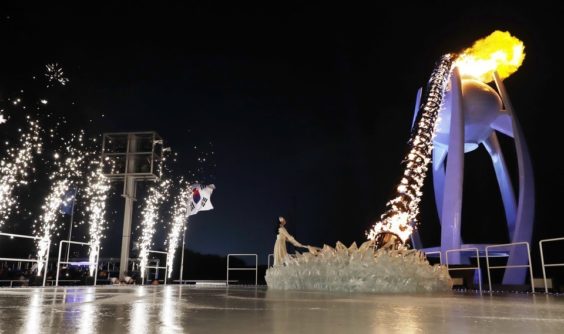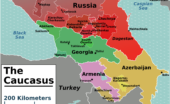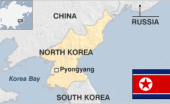Re Ian Bremmer 'Could third-party candidates upend the 2024 US election?' 3 April The current political movement in the USA…
2018 Olympics Pyeongchang
Written by Diana Thebaud Nicholson // February 26, 2018 // Olympics // Comments Off on 2018 Olympics Pyeongchang
Andrew Cohen: Americans are becoming as blasé about winter sports as its president is about foreign trade
Its fourth place in South Korea was behind Norway (39 medals), Germany (31 medals) and Canada (29 medals). Privately, the Americans hoped for 37 medals and expected at least 25.
Strangely, though, in a country as competitive as this one, its showing scarcely matters. Americans are less interested in the Winter Games, which is why television ratings were down.
In Canada, like other lesser countries seeing themselves in the world, our commitment to international sports grows. In sports, in fact, we’re becoming less North American and more Nordic. Our inspiration here is Norway, as it should be in social welfare, income equality, women’s rights, development assistance and infrastructure.
For the Americans – big, loud, swaggering – international legitimacy matters less in sports. The Winter Games are a nice show, but Trump’s America is just as happy to play at home.
Harsh, but more than a bit of truth
How did Canadian Olympians become the new Ugly Americans?
It has been a long three weeks and Canada is feeling a bit tired and emotional. We’ve been through a lot here, including a complete personality makeover.
Until Pyeongchang, Canada was America’s shy friend, the one who tags along to the party and hangs out near the punch bowl.
But success has changed us. We’re loud and pushy and like to be the centre of attention. We pick fights and tell other people what to do. We’re mostly harmless, but occasionally a nightmare to live with. Also, we win a lot, which doesn’t endear us to anyone but ourselves.
It’s fun going to Olympic events you are only vaguely familiar with, but feeling fairly certain that a Canadian, or several Canadians, will be very good at them.
Creating a culture of excellence is the reason the COC exists and it has demonstrably done its job here. So high fives all around.
But every yin has its yang. Becoming the new America feels great when you’re winning.
It may not always feel so hot when everyone else is looking up at you, just itching for an opportunity to put you back in your place.
Winter Olympics 2018: closing ceremony – as it happened
Giant snowglobes, emotional speeches and modern dance – how the 2018 Winter Olympic games in Pyeongchang came to a close
24 February
Winter Olympics: IOC votes to lift Russia ban if no further doping violations
(BBC) However, the IOC says Russian athletes will not be allowed to parade under their own flag at the closing ceremony.
Russia was banned because of state-sponsored doping at Sochi 2014.
A team of 168 competed in South Korea as neutral Olympic athletes from Russia but two failed drugs tests.
Alexander Krushelnitsky won bronze in the mixed curling but was stripped of his medal after being found guilty of doping while Nadezhda Sergeeva, who competed in bobsleigh, was banned on Saturday.
23 February
Pyeongchang 2018: The Olympics that lived up to the Olympic ideal (or did they?)
In place of Armageddon, we’ve seen images of reconciliation, of two Koreas marching as one … of a unified women’s hockey team bawling its eyes out after its last game
(National Post) And then came Pyeongchang, a Winter Games hosted not in some safe, anodyne Euro/North American ski town, but 40 miles from North Korea, the home of a cartoonish dictator with nuclear capabilities, and taunted mightily to use them in recent months by an American President with a Twitter habit. Everything appeared ripe for another Olympics to go horribly wrong.
But in place of Armageddon, we’ve seen images of reconciliation, of two Koreas marching as one in the Opening Ceremony; of a unified women’s hockey team bawling its eyes out after its last game and saluting fans with the singular chant — Korea!
Forget about Canada’s record medal haul, Tessa and Scott, heroic snowboarder comebacks, crestfallen curlers, German hockey miracles and red mittens and toques. As the curtain falls on the Games — with a high-level North Korean delegation set to attend the Closing Ceremony and rumours of an inter-Korean summit — could this be the Olympics that finally lives up to the Baron’s lofty goal?
Could Pyeongchang 2018 come to be remembered as the final shot in the Korean War? …
Kim is a canny operator, and wasn’t playing along in Pyeonchang to play nice but to gain advantage, or stall for time, a tactic he learned from his dictator-father, Kim Jong Il.
… the two Koreas marched as one at the 2000 Summer Olympics in Sydney, Australia … and again in Athens four years later … and, again, two years later in Turin, Italy. Alas, instead of playing ball, North Korea’s dictator/dynasty just kept on keeping on, and producing missiles.
But what about the human factor, the Olympic intangible of youth, and the fact that the Games aren’t in Australia, Greece or Italy, but on the Korean peninsula, where a band of Korean women got drubbed in every hockey game, but also got to be teammates? Doesn’t the simple act of connecting with the Other matter? The players seemed to think so. The South Koreans sent their Northern friends home with photographs as gifts, so they could remember their time together.
9 February
(The Guardian) The torch has been lit, North and South Korea have marched as one and the 2018 Winter Olympics are now under way. Taking place in the South Korean town of Pyeongchang, just 80km from the border with North Korea, the Games will run until 25 February.
Aside from headlines about doping, smartphones and eggs, fans from around the world will be keeping a close eye on their star athletes’ medal chances.
All of the athletes will have to brave the coldest temperatures the Winter Games have seen in more than 20 years, but hopes are still high among some commentators that the Games will go some way to warming up relations between North and South Korea.
(WaPost) More than 90 nations will compete for gold across 15 events during the 2018 Winter Olympics in PyeongChang, South Korea.
The International Olympic Committee banned Russia from competing in this year’s games. However, it would allow carefully vetted Russian athletes to compete under the Olympic flag as “Olympic Athletes from Russia.”

The Quiet Modernism of Pyeongchang’s Opening Ceremony
In an imaginative but understated event, South Korea used augmented reality and tactical diplomacy to paint a hopeful picture
Editor’s Note: Read all of The Atlantic’s Winter Olympics coverage.
(The Atlantic) From the opening video montage set in an airport to the main narrative event in which five children traveled through time and space to a utopian cityscape with flying trains and virtual brain surgery, the emphasis was on the unstoppable march of progress. Although the beginning of the ceremony nodded to founding national mythology, the remainder was a subtle testament to South Korea’s technological and cultural power. Drummers in undulating lines moved in unison with light displays in the middle of the stage, before transforming seamlessly into the yin and yang of the South Korean flag. The national anthem was sung by the Rainbow Choir, South Korea’s first multicultural children’s chorus, emphasizing the country’s diversity.
This emphatic display of modernity was paused for the parade of athletes entering the stadium, highlights of which included a repeat performance by Rio 2016’s oiled-up, shirtless Tongan flag-bearer (this time braving below-freezing temperatures) and the strange spectacle of Russia’s delegation marching in nondescript grey and white outfits under the Olympic flag.
It was good to see G-G Julie Payette leading the Canadian cheer-leading contingent with her son, far less pleasant to witness Banquo’s ghost [aka Mike Pence] being churlish. Now, we learn that “senior IOC member Angela Ruggiero has called for North and South Korea’s joint women’s ice hockey team to be nominated for a Nobel Peace Prize. “ It certainly seems the team’s efforts have been having positive ripple effects. IOC President Thomas Bach told Reuters he plans to visit North Korea after the Games and even Mike Pence seems to have been touched (however briefly) by the Olympic spirit, commenting that the U.S. may be looking more favorably at “diplomatic engagement with the North.” Premature undoubtedly, but mildly encouraging.
It is notable that we have not heard one word of criticism about flaws in preparedness, the facilities, treatment of athletes or audience. South Korea seems to have done a great job of organizing, and as far as we know, without the characteristic charges of corruption and/or budgetary excess. In fact, the only criticism we have heard is of the cold and the wind factor for many of the outdoor competitions. The opening ceremony, aside from the interminable March of the Teams (can anyone explain the order in which they entered?), was so impressive.
24 February
A different way of looking at the medal count
Who Is Winning in Pyeongchang: Bloomberg’s Olympic Medal Tracker
Throughout the 2018 Pyeongchang Games, Bloomberg is tracking the medals won by each country. Wealthier nations tend to win more medals overall. But when you look at the ratio of medals to gross domestic product, or even medals per capita, bigger and richer is not always better.
22 February
U.S. Olympians Turn to Bitcoin to Fund Cost of Competing
(Bloomberg) “Both know all about speed, crashes, risk management, and holding on. Which is maybe why the US Luge Team and Bitcoin are made for each other,” the team wrote on its website, which features images of athletes lying on top of a flat sled speeding down a curvy ice track. “Funds historically have been scarce, but the sport of luge has always been one to reward innovation and technology.”
21 February
What to know about the politics of the Pyeongchang Games
From Russia’s participation to diplomatic opportunities, the political implications of this year’s Winter Olympics are many. David Lao breaks down five things you need to know.
(Open Canada) 1. This is not the first time the Koreas have marched underneath the same banner.
2. The thawing of Korean relations is still far from certain.
3. The Trump administration has not yet named a South Korean diplomat. The position has been vacant since [Trump’s inauguration in Jan. 2017], among many other senior diplomatic positions around the world.
4. The US has recently agreed to preliminary talks.
5. The participation of Russian athletes underscores Russia’s global influence.
19 February
Virtue, Moir claim ice dance gold in thrilling finale
Canadians break overall world record set by French rivals earlier in event
Tessa Virtue and Scott Moir capture gold in ice dance scoring 206.07. Gabriella Papadakis and Guillaume Cizeron of France win silver while Maia and Alex Shibutani of the United States capture bronze. Figure skating, Feb. 19: free dance (video)
Tessa and Scott: 20 years of magic (video)
The U.S. women’s hockey team advanced to the gold medal game by dispatching Finland, 5-0, in the semifinals last night.
This morning, Canada breezed past the Olympic Athletes from Russia, 5-0, in the other semifinal. The two meet Wednesday night for gold. The United States hasn’t won the Olympic championship since it captured the gold in 1998.
9 February
Olympic Truce? Not! Emerging Political Science Shows Us that International Sports Are Actually Bad for World Peace
(UN Dispatch) There is always a political component to the Olympics. This year, much of the commentary will focus on how the Olympics is providing a platform for cooperation between the Koreas –they are marching under a single flag and joining forces for Women’s hockey.
But emerging political science suggests that contrary to popular perception, international sporting events are not catalysts for peace — in fact, just the opposite is true. A new peer reviewed academic paper, Nationalism and Conflict: Lessons from International Sports appears in the December issued of the journal International Studies Quarterly. shows that major international sporting events actually contribute to international conflict.
Andrew Bertoli, a post doctoral fellow at Dartmouth, studied at every World Cup from 1958 to 2010 to create a data set of countries that either barely qualified for the World Cup or barely missed the World Cup, losing by just a few points. He compared those sets of countries and found that countries in the World Cup were significantly more likely to start an international conflict than countries that did not qualify.
The reason: Nationalism.
17 January
North and South Korean Teams to March as One at Olympics
The two countries’ delegations will march at the opening ceremony behind a “unified Korea” flag that shows an undivided Korean Peninsula, negotiators from both sides said in a joint news release after talks at the border village of Panmunjom. The North will send 230 supporters to the Games, and negotiators agreed that supporters of both Koreas would root together for athletes from both countries.



